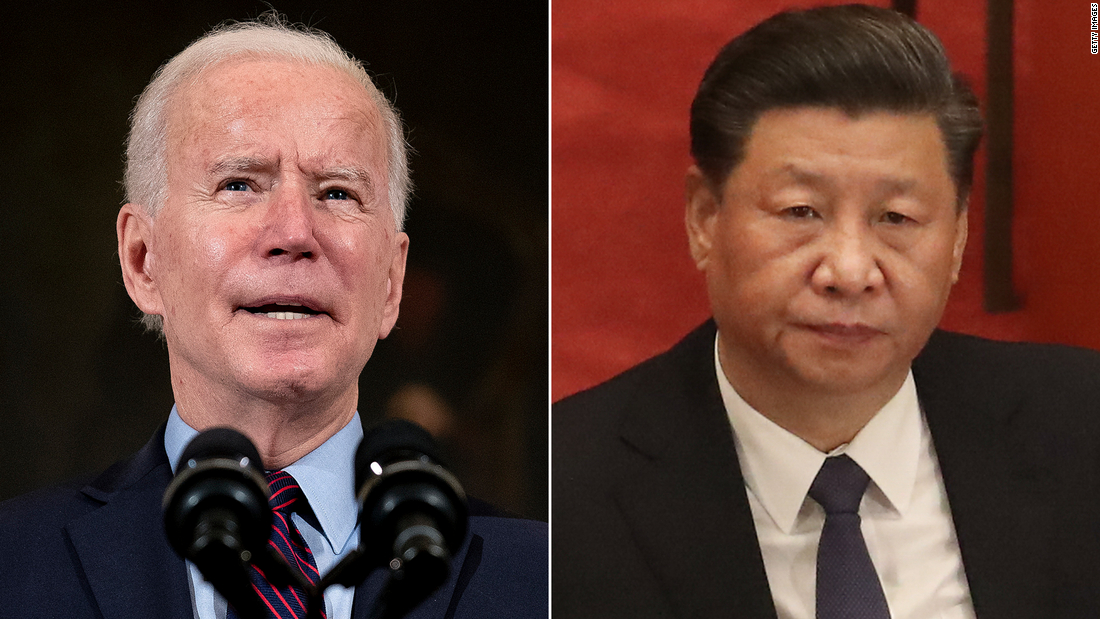
Biden repeatedly referred to the profound challenge China and its strongman leader pose to US influence, economic primacy and democracy in his joint address to Congress on Wednesday night. It’s not just a foreign policy issue — Biden tends to refract many domestic questions through a prism of China’s growing might and the need to build American competitiveness.
He ought to know. He’s probably spent more time with President Xi Jinping than any other American, after being tasked as vice president with building ties with the rising Chinese supremo. His claim to have racked up 17,000 air miles with Xi is classic Biden hyperbole but hints at what CNN’s Jeremy Diamond reports is the US leader’s preoccupation with his rival.
Biden’s China theory intersects with his concern that democracy is under threat across the globe and that US foes see assaults on the political system from Donald Trump and his supporters as proof that the US model of governance is in trouble. The President often refers to his two-hour conversation with the Chinese leader, who called to congratulate him on his inauguration. “He is deadly earnest about becoming the most significant, consequential nation in the world,” Biden said Wednesday. “He and others — autocrats — think that democracy can’t compete in the 21st century with autocracies because it takes too long to get consensus.”
Biden’s views on China filter into his domestic policy. His ambitious plan to share the benefits of US wealth with workers is partly motivated by a desire to drain the pool of alienation and economic dislocation exploited by populist grievance merchants like Trump. He also appears to be identifying a common enemy for estranged Democrats and Republicans to rally around; for example, he’s pushing a climate plan conservatives abhor by arguing that the US should get the jobs forged by a new green economy rather than China.
Xi must view the fact that he has taken up residence in Biden’s head with some satisfaction; it likely fuels a growing sense that soon the most important President in the world could be in Beijing, not Washington.



